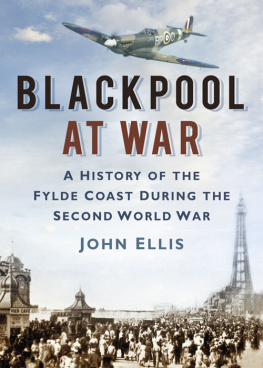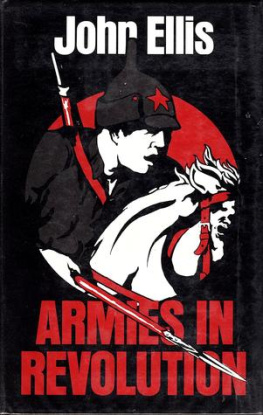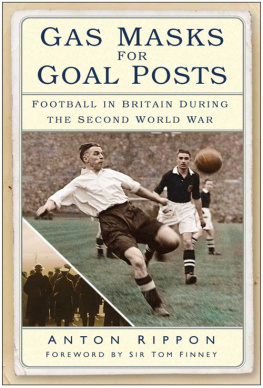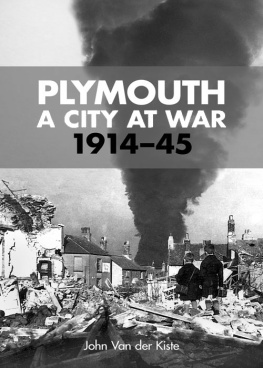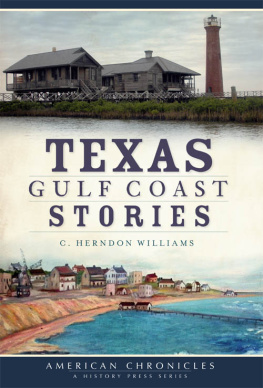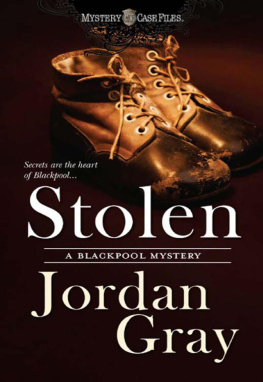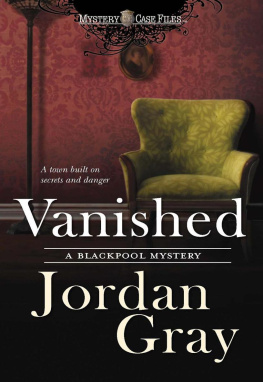In memory of all those on the Fylde who made
the ultimate sacrifice during the conflict
for the freedom of future generations.
CONTENTS
I chose to write this book to document the role the area played during the Second World War, both as a reference tool and for documenting the history for future generations. Few towns can claim to have been as important to the greater war effort as Blackpool. The Fylde had no fewer than four operational airfields and was a key factor for training new recruits for the RAF. The area also played a more traditional role in the conflict, such as maintaining tourism, which allowed people to forget about the horrors of war (even if only for a short period) and heavy industry, with the Vickers factory churning out spectacular numbers of bomber aircraft.
The area has had its fair share of ups and downs, including the tragedies of the Freckleton and Central Station air disasters, which brought untold misery to those affected. There is also an element of mystery surrounding the fascinating Peoples Playground story, in which Hitler had apparently earmarked the resort as a future National Socialist centre.
Whilst researching the book, I have uncovered many stories that I have found interesting and thought should be shared. The war played a crucial role in the development of the area and signs are still visible today if you know where to look. Remnants of the resorts wartime past still stand both tangibly, in the many pillboxes and structures, and intangibly, with the unseen legacy of some of the areas current major employers who owe their existence in the area to the Second World War. These include BAE Systems, Springfields Fuels Ltd (in Salwick and formerly British Nuclear Fuels Ltd) and the Department for Work and Pensions (DWP). For the purpose of this book, I have defined the area covered as the Fylde Coast. Areas included are Blackpool, Fleetwood, Lytham St Annes, Kirkham, Over Wyre and rural Fylde. By documenting the exploits of the people who served, worked and lived in the area during the war my hope is that they will be remembered long into the future.
I hope you find reading the book as interesting as I have found writing it, and enjoy discovering the huge part that this small area of the Lancashire coastline played in the wider conflict.
Finally, I would like to thank everyone who contributed to the book, including the authors and enthusiasts who provided great reference material and the people that showed me support at every level. Special mention must go to my father, Andrew Ellis, who provided me with additional material as well as local historical knowledge gathered from growing up in the area (and also helped with some of the writing), and my mother, Ruth Ellis, who did all the proofreading and provided advice. Finally, I would like to thank everyone at The History Press who freely gave help and useful tips to this novice author. They also showed support in getting the project off the ground and the book would not have been possible without the publishers support and experience.
In 1939, an air of uncertainty hung over the country and the mood in Blackpool was no exception. The resort had experienced a poor holiday season as people awaited the outcome of Neville Chamberlains ill-fated appeasement policy and the population feared what the future would bring. In Blackpool, preparations were being made to ready the population for war with local decision-makers planning to cope with the worst scenarios. The two greatest pre-war fears of gas attacks and devastating civilian bombings were prevalent, and there was real concern coming from the people in the know. In response, the Government issued gas masks to everyone, warnings were everywhere and stocks of hundreds of thousands of death certificates were distributed around the country. Air-raid precaution leaflets were handed out as early as 1936. As tensions mounted and war became inevitable, the preparations moved up a gear: cardboard coffins were stockpiled at Raikes garage and some 2,000 air-raid shelters sprung up in the area, the promenade housing some of the biggest. These shelters provided accommodation for over 85,000 people and cost nearly 300,000 to build. Young men from the resort had to complete National Service and everyone was preparing for the worst. The Government encouraged flying clubs with Squires Gate and Stanley Park both having their own meetings. Odd radar structures sprang up in the area, which included the Blackpool Tower for a brief period along with a site at the back of St-Annes-On-Sea. To add to the problems the winter of early 1939 was particularly bad and all the omens seemed to be pointing to a declaration of war materialising.
When war was finally declared the population sprang into action and civilian buildings were protected by sandbags filled on the beaches by volunteers. The Home Guard was formed along with Air Raid Precautions (ARP) teams. The ARP built a fire station in Bispham on Red Bank Road and had its training centre in a garage on the corner of Deansgate and Lytham Road in South Shore. Men enlisted voluntarily and were also called up for various services, some were to go on to the Continent to try to hold back Hitlers army before it overran France, others waited for the war to hit Britain. Many local volunteers made their way to the Far East where they would serve in the ill-fated early defence of the outposts of the British Empire. Precautionary measures were taken with road signs being blackened out to disorientate the Germans (although with a 500ft tower I think it wouldnt have taken even the most navigationally inept location finders long to realise they were in Blackpool). The pre-war building boom which saw many buildings such as the Derby Baths, the Opera House, the Odeon Cinema and Talbot Road bus station being built was immediately stopped as construction resources were diverted to war projects. Water tanks sprang up in the area as one major fear the Government had was that the nations water supplies would be cut off if reservoir walls were cracked by Luftwaffe bombs. Many places were requisitioned for various different purposes. Evacuees started to flood into the resort from neighbouring cities such as Manchester, putting strains on local services as well as the families who agreed to accept them (although for some their residency would not last long). Women were put into jobs such as driving the towns famous trams to free up men for soldiering. Campaigns were launched in order to help the war, calling on civilians to donate money or goods, many took up the challenge and Revoe Park was used as an area to house scrap metal donations. It was a weird time as the phoney war as it came to be known as was in full swing. Britain was at war but it hadnt yet been directly hit or experienced a significant loss of life. Time was needed by both sides and it gave the country time to prepare and get its ship in order. Eventually war established itself and people began to get used to the conflict. Rationing meant that nothing could be wasted and many locals turned to the black market. Holidaymakers and soldiers on leave used the resort as a place to forget about everything, and the various entertainment buildings could get quite lively after the sun set. For residents hard work was necessary, many went into the challenging environment of the Vickers factory where they were constantly under pressure to perform. Others were drafted into the armed forces as more and more men were needed, others, who couldnt enlist, volunteered for the Home Guard. Eventually the war became a fact of life and the population simply kept calm and carried on.
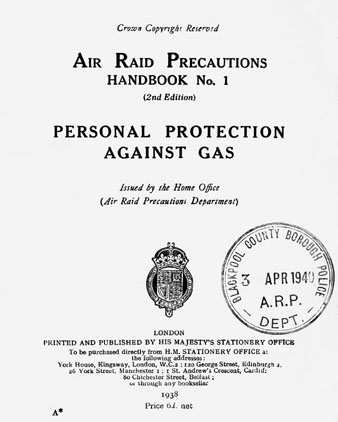
Next page
